-
Posts
12528 -
Joined
-
Last visited
-
Days Won
560
Content Type
Profiles
Forums
Events
Everything posted by Fiery
-
AIDA64 uses clEnqueueReadBuffer to read the buffer from the GPU to the CPU. There're two methods to allocate buffers however, one is pinned and the other is pageable. I'm not sure what you can or cannot achieve using OpenGL, so make sure to Google on those terms (pinned buffer, pageable buffer).
-

fixed: ASRock DeskMini A300 Sensors (A300M-STX Motherboard)
Fiery replied to fadsarmy's topic in Hardware monitoring
Please post a copy-paste or screenshot of the Computer / Sensor page of AIDA64 as well, so we can check what works so far and what doesn't. -
I suppose yes. It's only a matter of whether you can poll (read) the thermal sensors from user mode.
-
It's not dumb at all. Right-click on the System Tray icon of AIDA64 --> Show SensorPanel. Right-click on the SensorPanel (anywhere) --> SensorPanel Manager. In there click on the Import button near the top-right corner.
-
I'm still not sure if I understand what the actual problem is. Are you sure it's not because -- as I've mentioned above -- AIDA64 can only handle one out of the two Kraken devices you've got?
-
Try to disable the option called SMBus access through ACPI (Asus motherboards) in AIDA64 / main menu / File / Preferences / Stability, and restart AIDA64 to apply the changes.
-
Meanwhile we've ordered a Stream Deck device in order to help us develop support for it. We're currently waiting for it to arrive. I'll post the updates into this topic.
- 46 replies
-
- stream deck xl
- elgato
-
(and 4 more)
Tagged with:
-
No, but you can make your own custom gauge images and assign the 16 states for each gauge.
-

Sensor does not show Power Values (Gigabyte F2A88X-D3HP + Athlon X4 880K)
Fiery replied to gtm's topic in Hardware monitoring
Most nVIDIA GPUs only provide power draw in percentage of TDP. -
Since the gauges are managed as images, it's not possible to customize the built-in set. You can however use custom images for one or more of your gauges to have a different colour for them. If you need the default set of gauge images so that you can modify their colour (using Photoshop or other image editor), let me know in private message.
-
Because your SSD has 2 thermal sensors. Some sources indicate that the 2nd one is the one for the flash memory controller chip, but it was never confirmed by Samsung itself.
-

i7 8700k M.2 SSD allowed higher OC for i7 8700k
Fiery replied to overthemoon's topic in Benchmarking, system performance
Thank you for being a faithful customer to us and a wholehearted AIDA64 user. That's an intruiging phenomenon indeed. My guess would be not so much the speed of the new SSD that makes a difference, but maybe the lower power draw and lower thermal output of it.- 1 reply
-
- 1
-

-
- cpu stress test
- stress test
-
(and 1 more)
Tagged with:
-
With custom gauges you're pretty much restricted to their exact dimensions since you cannot adjust their size without re-creating them using Photoshop or such. You need to re-adjust the positions of the rest of the LCD items to fix the alignment problems.
-
I think this is already solved, but I provide the info on how to get around it before locking this topic. AIDA64 v6.10 implements an option in main menu / File / Preferences / Stability to let you disable Thermaltake Riing Plus and Pure Plus sensor support in case you experience issues about it.
-

Gigabyte X570 Series - Sensors und Fan-Names
Fiery replied to golgorod's topic in Hardware monitoring
Please note that you can rename the fan labels on the Computer / Sensor page if you do a left-click on the labels. Thank you for the dump. It seems to be a bit complicated, especially since as I assume, that device cannot be purchased separately -- or can be? -
Don't worry, we will handle the mentioned issues (DIMM thermal readings and Ryujin 360 support) in their individual topics here on this forum.
-
In case you use a different DPI zoom setting for your monitor than where the original SensorPanel layout was created, you need to re-adjust the gauge sizes and position of the LCD items as well.
-

CPU temperature never moves (Asus ROG Strix B350-I Gaming)
Fiery replied to cqman's topic in Bug reports
If you can see sensor type listed as "ITE IT8665E (MMIO F7000000h)" no matter how you have the option Asus WMI sensor support set, it means your motherboard doesn't support the Asus WMI ACPI interface. Please note that without that interface collisions between the motherboard BIOS and AIDA64 will occur, and it can cause minor (or sometimes even major) issues. -
Please right-click on the bottom status bar of AIDA64 main window --> System Debug --> USB Dump. Copy-paste the full results into this topic, or attach the results as a TXT file to your post. You may need to enable status bar in AIDA64 / main menu / View first. BTW, do you have NZXT CAM running in the background? Thanks, Fiery
-

Asus Prime X470-Pro fan logic reverses with AIDA64 running.
Fiery replied to Rockstonicko's topic in Bug reports
Thank you for posting their response. Sadly in the past 10 or so years many hardware manufacturers just piled on existing technologies to unlock new sensor readings and new tricks (like putting RGB LEDs onto and into everything), without ever re-thinking the way sensor monitoring and interacting with hardware should work in the 21st century. With Ice Lake and Tiger Lake desktop platforms things will hopefully change though, so fingers crossed for Asus and others to come up with a more modern solution that causes less headaches not only to them but to all of us, including hardware owners, enthusiasts and software engineers as well. -
If it works sometimes, then I'd suspect AIDA64 collides with another monitoring tool like NZXT CAM. Do you experience the unstable Kraken readings even when you close NZXT CAM?
-
Thank you! Is there a software -- made by either Asus or a 3rd party -- that can show you the readings for your Ryujin 360 that you're looking for?
- 12 replies
-
Please right-click on the bottom status bar of AIDA64 main window --> Sensor Debug --> SMBus Dump (Full). Copy-paste the full results into this topic, or attach the results as a TXT file to your post. You may need to enable status bar in AIDA64 / main menu / View first. Thanks, Fiery

